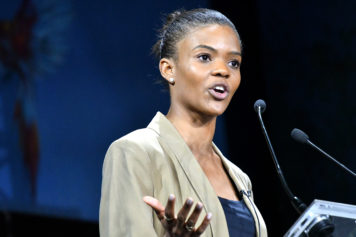After five years at the helm of the nation’s best-known civil rights organization, Benjamin Jealous announced his resignation, effective Dec. 31, to spend more time with his family. Jealous will be leaving the organization on much firmer financial footing, with a bigger role in the major social justice issues of the day than when he started.
From marches protesting the death of Florida teen Trayvon Martin to vigils for death row inmate Troy Davis in Georgia, the NAACP under Jealous was a visible presence on the national scene—with Jealous himself a prominent voice on the media landscape.
In interviews, Jealous fingered the brutal travel schedule as the primary reason for his departure. Jealous, whose wife Lia Epperson is a civil rights lawyer, has two children—daughter Morgan, 7, and Jack, 13 months.
“Leadership knows when to step up and when to step down,” Jealous, 40, told USA TODAY. “This day I can say with pride that I’m prepared to step down and make room for the next person who will lead this organization to its next chapter.”
In 2008, when Jealous was elected NAACP president at age 35, he was the youngest person ever to serve in that capacity. But with his relative youthfulness came a young family. When he appeared on CNN to explain his decision, anchor Don Lemon expressed some skepticism at the “family” excuse.
When Lemon asked Jealous if he was being lured away from the organization. “I said yes, there is,” Jealous said. “His name is Jack, and her name is Morgan.”
He said he was fulfilling a promise he had made his daughter, Morgan. “I told my daughter 4 and a half years ago, when she said ‘When are you coming back, Daddy?’”
“Give me five years,” Jealous says he told her. “I explained how important this organization was, that our family has belonged to for five generations. I had an important role to take it to the next level. Having done that, there was no excuse to not keep that promise to my daughter.”
Jealous is considering teaching offers from several universities near his Silver Spring, MD home, telling the Washington Post that he wants to school young people in the tactics of social change. He also wants to do some fundraising for the next generation of black political leaders.
“Emily’s List has been very effective for women candidates and there is no such organization for candidates of color, and I have never understood why,” he said.
As for the state of the NAACP, Jealous said he leaves the organization more technologically savvy—the organization’s e-mail list jumped from 174,000 names to 1.3 million during his tenure—and more financially sound, with a jump in revenue from $25.6 million in 2008 to $46 million last year. In addition, the organization’s base of individual donors has expanded eightfold. Under Jealous, the NAACP has become more of a player in national elections, registering 374,553 new voters in 2012 — more than double the number it registered in 2008.
Van Jones, host of CNN’s Crossfire and former Obama green jobs adviser, who said he has known Jealous since they were both student activists—Jones at Yale Law School and Jealous an undergraduate at Columbia—said Jealous helped return the organization to relevance.
“Ben Jealous really electrified the organization,” Jones said. “You’re talking about the oldest civil rights organization on the planet, and it was starting to show. The NAACP before Ben got there was financially in the red and politically marginal. Ben should be on the cover of every business magazine in America as foremost turnaround artist on the American scene.”
Mary Kay Henry, international president of the Service Employees International Union, said Jealous helped to expand the civil rights agenda to include the closure of dangerous power plants, early childhood education and health care.
“He’s been incredible in re-energizing the NAACP and taking the national operations to the next level,” said Henry.


